Xishan Scenic Spot Suzhou
Xishan Scenic Spot Suzhou
Xishan is the abbreviation of Xidongting Mountain. It is 11 kilometers wide in North and south, 15 kilometers long in East and west, and 79.8 square kilometers in area. It is the largest island in Taihu Lake. Xishan scenic spot is the essence of Taihu scenic spot. It is a lake and island area with archipelagic scenery, flower and fruit jungle, and historic sites since Wuyue. It has four scenic levels: Lake archipelago, Lake Bay landscape, mountain dock Valley and mountain peak. The whole region plans to construct 20 scenic spots such as Yunchang, Shuiyuewencha, Linwu Evening Smoke, Summer Fishing Song, Liyun in Yongli, Xuanyang Rice Wave, Xiaoshan Heritage, Maogong Snow, Xihu Sunset, Shigong Autumn Moon, Fengyuan Rain, Jinduo Songzhao, Culture Sunfeng, Dashaguanfan, Luohan Gusha, Jilangmei, Mingwan Ancient Village, Yingjiao Fengtao, Tianwang Fish Country, Hengshan Xuri. The planned area of scenic spots totals 609.3 hectares.
Xishan, Suzhou
"Beautiful Taihu Lake, charming Xishan", this is the first compliment of Professor of Shanghai Academy of Social Sciences on Xishan Island. There are 72 peaks in Taihu Lake, and 41 peaks in Xishan. The so-called "mountain is not high, if there are fairies, then name", the highest peak is only 336 meters , but its rich cultural and historical connotation has endowed Mount Xishan with endless charm.
Scenic spot
The Ninth Cave in the World
Linwu Mountain is located in the southeast of Xishan Town. According to historical records, Dayu left footprints there as early as during the period of Dayu's water control. The Records of the Land of Wu recorded that "there are caves in 130 miles west of the county, which is unpredictable in the ancient times." King Wu sent his father-in-law Lingwei into the cave, which he could not finish on the seventeenth day because of Yu Shu. Linwudong, known as the Ninth Cave in the World, is commonly known as Longdong, which is located in Zhenxia Village in the eastern part of the western Shandong Province. Linwudong unearthed Taoist relics such as Jinlong, Jade Bamboo Slips and Images of Tang Dynasty. Ancient poetry praised: "a mountain flying in Taihu Lake, Qianjiao deep forest house cave".
Daoyin Garden is located in the south side of Linwudong, also known as Wuzhi Jingshe, which is the seclusion place of Wuzhi Scholar (Li Mida) in Song Dynasty. He was dismissed from office in Pingjiang (now Suzhou) when he was the prefect in February, and then built a garden to live in seclusion, claiming that his residence was "Tao Yin Garden". His Records of the Tao Yin Garden are carved at the entrance of the forest house. In April 1995, it was declared as a cultural relic protection unit at Jiangsu Province level.
Lin Wu Mei Hai
With the forest house as the center, thousands of mu of plum forest around the mountain are continuous. Its area, plum species and density are the largest in the country. Since ancient times, Linwu has been a resort for appreciating plum trees. Since the Tang Dynasty, it has left a deep history of plum script. There are red plum, green plum and white plum, especially white plum. Every blooming season, thousands of mu of plum blossoms, a vast expanse of white, like snow, like the sea, the scene is very spectacular. Linwu Meihai is also the research base of Chinese plum culture. The annual Chinese Taihu Plum Blossom Festival is held here.
Shigong Hill
Shigong Mountain is a peak in the southeastern corner of Xishan Town, which ranks first among the eight sceneries of Xishan. It has three faces of water, exquisite rocks and lush green cypress. Before Shigong Mountain, there were two unusual stones, one resembling an old man is Shigong, the other is Shipo. They stand shoulder to shoulder and look at each other. Legend has it that they miss their aunt and sister-in-law across the lake day and night. Shi Gong's name came from this.
Shigong Mountain, located in the southern corner of West Shandong Province, is named Shigong because of the huge Taihu Stone in front of the mountain, which is like an old man. "Stone is a family gathering, Taihu Lake is a class", the world-famous "Hua Shi Gang" in the Song Dynasty was collected here, and left behind "Lianyunbao" and other relics. In the south of the hillside, the Royal Mohist Pavilion with four corners flying upward is named for the stone tablet of the Qing Dynasty ancestor Shunzhi's imperial book "Respecting Buddha". As the treasure of Zhenshan, the three words "Royal Mohist Pavilion" are written by Pujie. "Guiyun Cave" is the Yan Mao cursive script of Ming Dynasty. There are some cliff stone carvings at the entrance of the cave, such as Xu Gang's regular script "reading saints, doing benevolent and righteous things, keeping loyalty and filial piety".
The Broken Hill Pavilion is square, and its pillars are engraved with the couplet of the famous calligrapher Fei Xin-mei, Wang Chang of the Ming Dynasty, "Mountain meets man, sky floats with water". In the pavilion, there are poems written by the ancients Zhang Pengchong: "The Pavilion is a lonely one, with a faint view of the pavilion. There are no walls in the sky, and the moon drinks the lake.
When Laihe Pavilion was built, a group of cranes flew from Fanghe Pavilion in Xizi Lake. When they saw the green mountains and rivers, they stayed at night, so the pavilion was named Laihe. The couplets on the pavilions and pillars are written by Wu Qiaomu, a famous painter and calligrapher. The Pavilion is situated above the dangerous rocks with extraordinary momentum. Behind the Pavilion there is an ancient cypress, vigorous and upright. At the foot of the cliff there is a side called "Hechi".
Yu Temple
Yuwang Temple is an ancestral temple built by Xishan Islanders to commemorate Dayu who has made great achievements in water control. Yuwang Temple has a long history. According to historical records, it was first built in Liang Dynasty. It has a history of more than 1200 years. The existing Hall of Yuwang Temple is a building of the 14th year of Jiaqing in the Qing Dynasty (1809). Yuwang Temple covers an area of more than 20 mu.
The ancient Yuwang Temple not only expresses its artistic beauty in ingenuity and delicacy, but also reflects its image beauty in the integration with the natural environment. The ancient Wharf at the southeast corner of Yuwangmiao is a relic of the Ming Dynasty. The wharf is 65 meters long, 3.4 meters wide and 1.8 meters high. The stones used at the wharf are all granite. It is magnificent and has a long history. It can be called the best in Taihu Lake.
Traffic information
No. 69 (Suzhou Railway Station departure), No. 58 (Wuzhong Bus Station departure) Xishan Agricultural Park, Linwudong, Shigongshan can all get off. The whole journey is about 2 hours and 1 hour respectively. The fare is 5 yuan. The last bus is 21:00.
Practical information
Ticket Price
Luohan Temple 10 yuan; Linwudong (Meiyuan) 50 yuan; Shigongshan 50 yuan; Baoshan Temple 10 yuan; Mingyuewan Village 50 yuan; Guzhangyuan 25 yuan; Baoshan Zen Temple 20 yuan; Xishan Agricultural Park 25 yuan; Wuwufeng 80 yuan (including sightseeing cars). Old people's card is half price and children's ticket is over 1.4 meters.
Opening Hours
8:00 - 17:00
Time reference
Luohan Temple, Baoshan Temple, Ancient Zhangyuan 0.5 hours, Linwudong (Meiyuan), Xishan Agricultural Park 1 hour; Fangfeng 1.5 hours; Shigongshan 2 hours
Pictures From: http://bbs.fengniao.com/forum/10467501.html
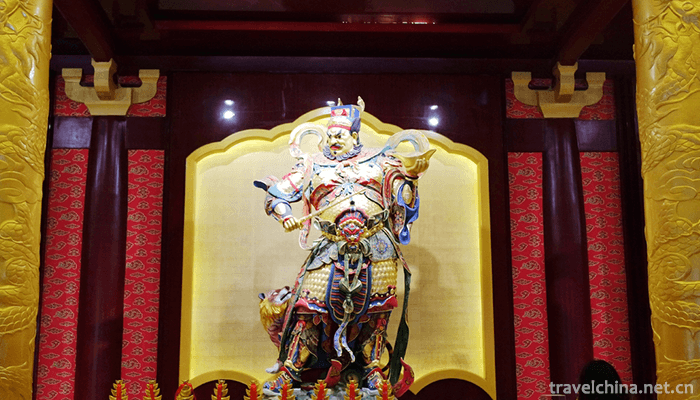

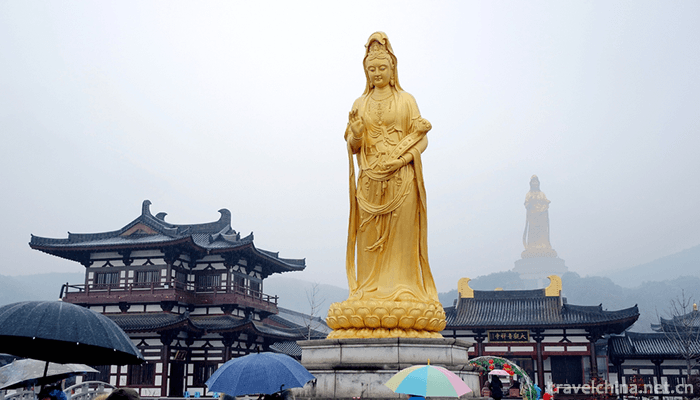
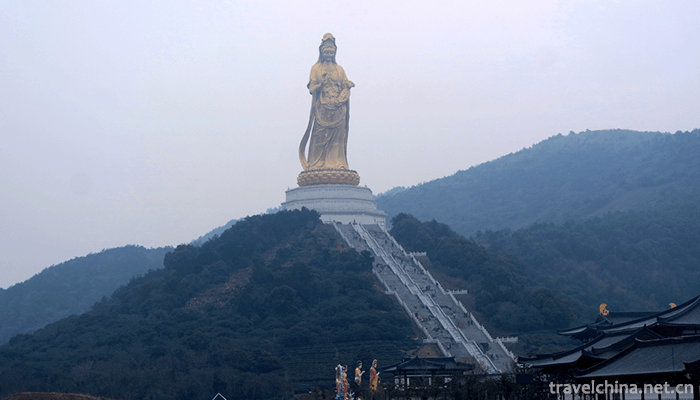
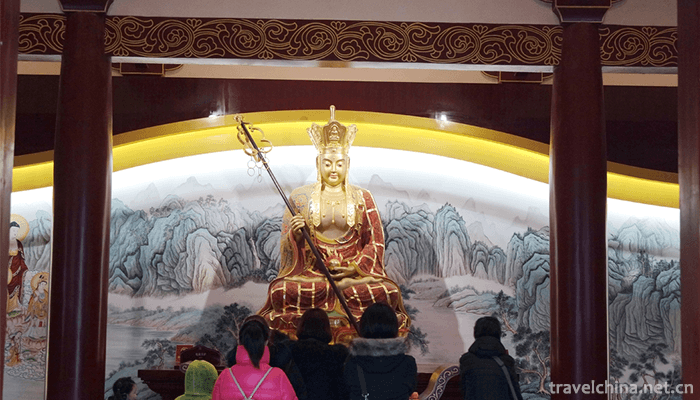
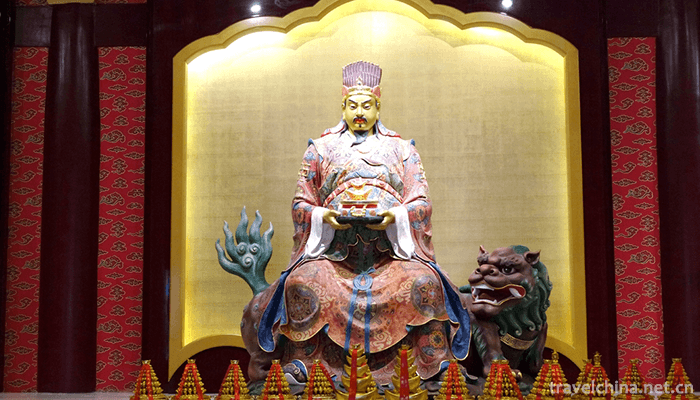

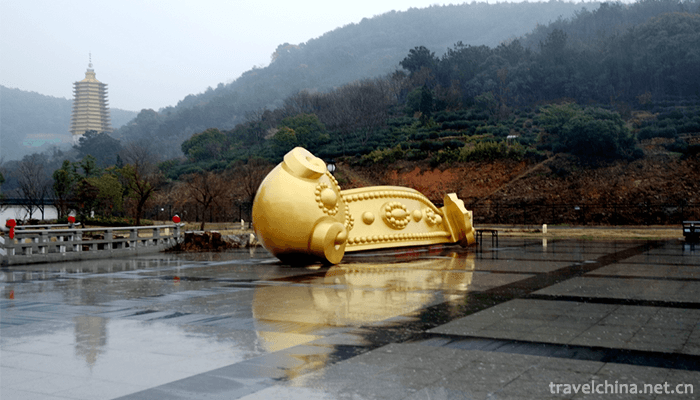
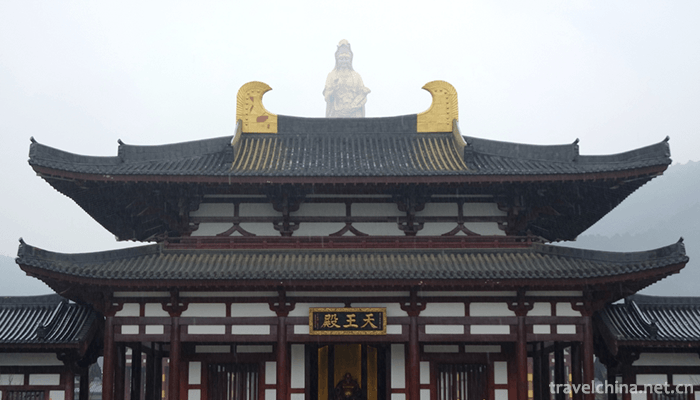
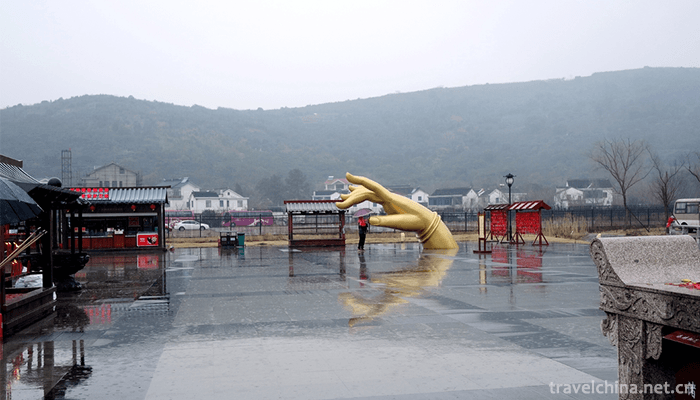
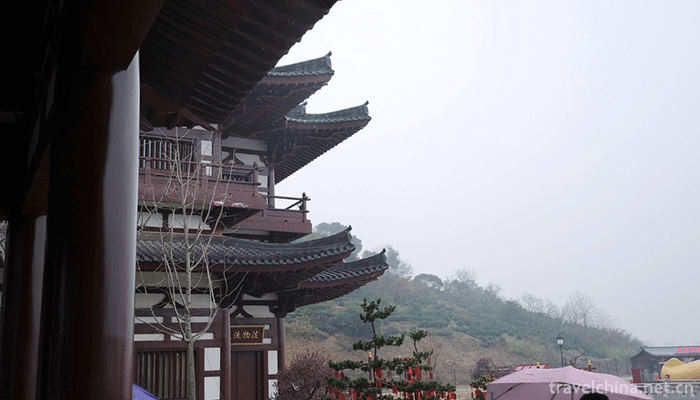
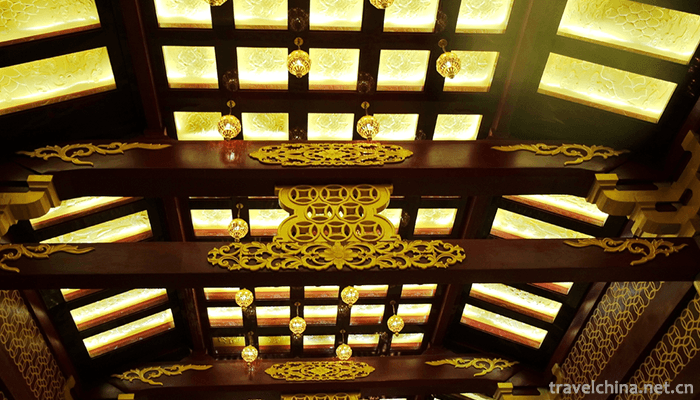
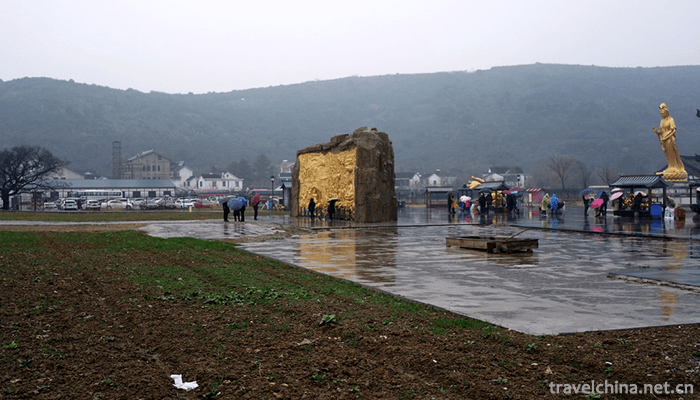
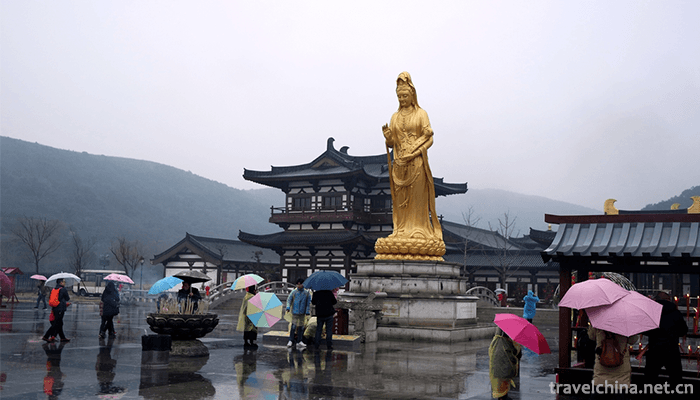
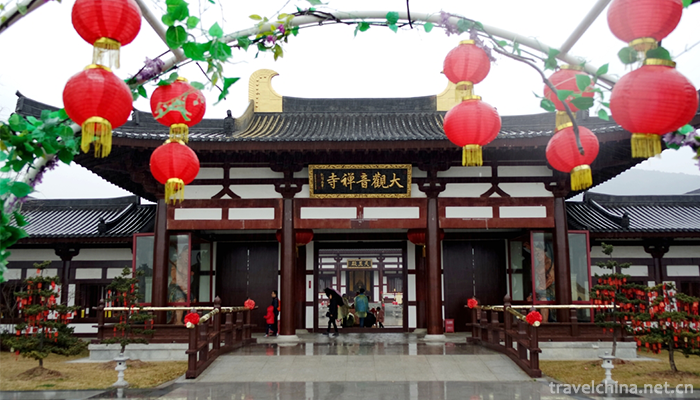
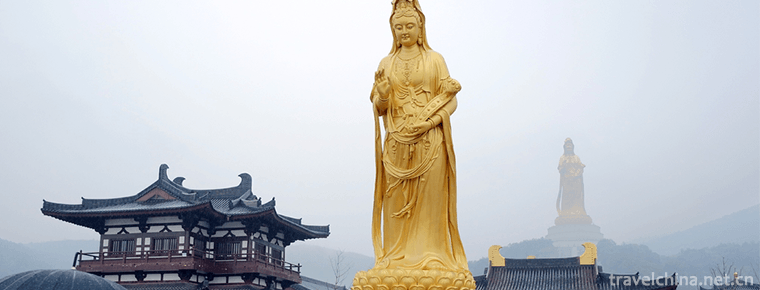
-
1.The AncientCity of Ping Yao
The AncientCity of Ping Yao is located in Pingyao County, central Shanxi Province. It was founded in Xuanwang Period of Western Zhou Dynasty (827-782 BC).
Time 2018-11-24 -
2.Dongshan Lake Hot Spring Resort
Dongshan Lake Hot Spring Resort is the first national AAAA-level scenic spot in Chaozhou City. It is located in the Dongshan Lake scenic spot of Shaxi Town at the junction of Chaozhou
Time 2018-12-19 -
3.Shi Bao Village
Shibaozhai, a national AAAA-level tourist attraction, a national key cultural relic protection unit, is one of the 30 best new tourist landscapes in the Three Gorges of the Yangtze River,
Time 2019-02-08 -
4.Xiangshi Zoo
Xiangshi Zoo is invested and constructed by Dongguan Yuye World Industrial Investment Co., Ltd. The total investment of the project is estimated to be 350 million yuan.
Time 2019-02-25 -
5.Uygur Sainem
Among the numerous traditional folk dances, "Sainem" is the most common form of Uygur folk song and dance. It is widely spread in the towns and villages in the north and south of Tianshan Mo
Time 2019-06-27 -
6.Lotus in Wenzhou
Wenzhou lotus is a local opera evolved from Wenzhou Taoism, and it is also one of the main operas in Zhejiang Province. It has spread to Wenzhou (including the counties under its jurisdiction) and par
Time 2019-06-28 -
7.Calculation with an abacus
Liu Hong (129-210 A.D.), a character Zhuo, a descendant of Liu Xing, the king of Lu in the Eastern Han Dynasty, is an outstanding astronomer and mathematician in ancient China. He is the inventor of a
Time 2019-08-10 -
8.Beijing University Of Agriculture
The predecessor of Beijing University of Agriculture, Tongxian agricultural school, Hebei, was founded in 1956. In 1958, Tongxian agricultural school in Hebei province was merged with Beijing agricult
Time 2019-09-06 -
9.Guan Yu
Guan Yu(? - 220 years), the word is long, then changed word cloud length. Hedong County Jie county (today) Shanxi Yuncheng People are called "beauty beard Gong". Early follow Liu Bei In the
Time 2019-09-07 -
10.Public education in Chengdu Giant Panda Base
From 2003 to 2016, Chengdu base received more than 100000 primary and secondary school students at home and abroad, and trained more than 800 volunteers; went to colleges and universities, communities, primary and secondary schools, kindergartens and nature
Time 2020-12-13 -
11.Meishan transportation
Meishan occupies an important traffic area at the South Gate of Chengdu, including Chengdu Leshan expressway, Chengdu Ya'an expressway, Chengdu Ziji Luzhou Expressway passing Renshou City, Leya Expressway passing through Hongya City, and Suizi
Time 2020-12-18 -
12.Yibin cultural undertakings
By the end of 2019, there are 7 art performance groups, 2 art performance venues, 11 cultural centers, 186 cultural stations and 10 public libraries in Yibin cultural system. There are 1 provincial science and technology tourism demonstration base, 2 prov
Time 2020-12-18